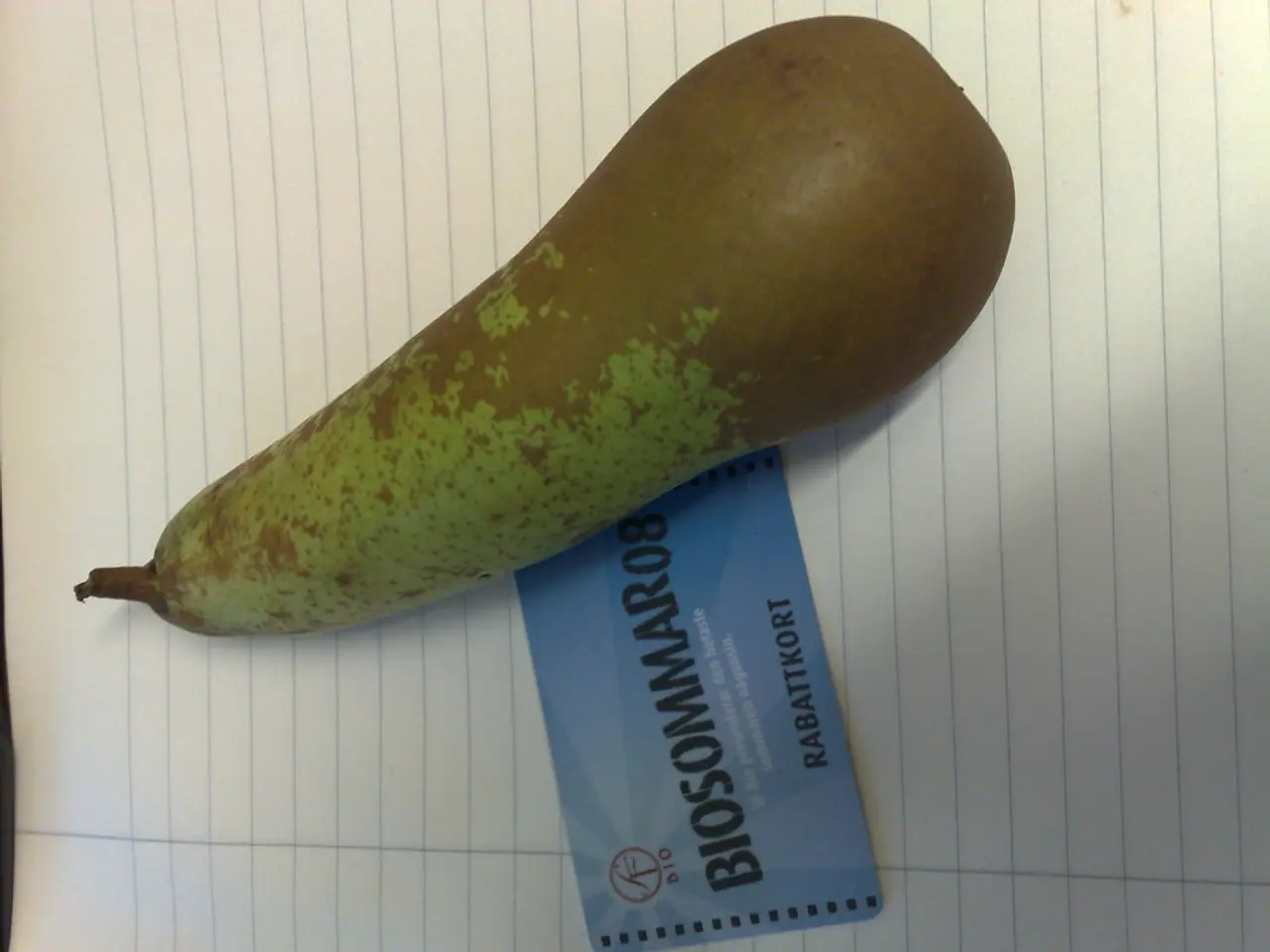Managing Uric Acid Levels and Gout: A Guide
In a bid to lower uric acid levels and minimise the risk of gout and kidney stones, individuals can consider adopting natural management strategies. These methods include dietary changes, hydration, and the use of certain supplements.
Staying well-hydrated is crucial, as drinking at least 2 to 3 litres of water daily supports kidney function and aids in flushing out excess uric acid through urine [4]. It is essential to limit purine-rich foods such as red meat, organ meats, shellfish, and sugary drinks, which increase uric acid production [4][5].
One promising food to incorporate into the diet is cherries, particularly Montmorency cherries, which are rich in antioxidants called anthocyanins. These compounds help reduce uric acid and inflammation, making cherries an effective option for managing uric acid levels [1][2][4]. Tart cherry juice can also be consumed daily for similar benefits.
Increasing vitamin C intake may also contribute to lowering uric acid levels. Vitamin C is believed to enhance uric acid excretion through urine. Consuming fruits high in vitamin C, such as oranges, lemons, kiwis, and strawberries, or taking vitamin C supplements (about 500 mg/day) can help achieve this goal [1][2][3]. However, it is important to consult a doctor before starting vitamin C supplements, as their effectiveness in preventing or reducing gout attacks has not been conclusively proven [6].
Maintaining a healthy weight is another important factor in managing uric acid levels. Losing excess weight gradually reduces uric acid production and eases kidney function, aiding in the efficient elimination of uric acid [2].
For those seeking additional support, natural supplements such as celery seed extract, quercetin, magnesium, and potassium may be beneficial. Celery seed extract is known to promote urine flow and reduce inflammation, while quercetin, found in apples, onions, and cherries, inhibits uric acid production [1]. Magnesium and potassium help maintain proper urine pH and support kidney filtration [1].
In summary, natural management of uric acid involves a combination of hydration, dietary adjustments to reduce purines and increase fruits and vegetables, and possibly supplementation with tart cherry products, vitamin C, and other herbal extracts to support kidney function and reduce uric acid levels [1][2][4]. The Arthritis Foundation recommends water as the best drink to flush uric acid from the system. As always, it is advisable to consult a healthcare professional for personalised advice.
- Besides hydration, dietary changes play a significant role in managing uric acid levels.
- Reducing intake of purine-rich foods like red meat, organ meats, shellfish, and sugary drinks is recommended to limit uric acid production.
- Staying hydrated is essential for kidney function and the effective flushing out of excess uric acid through urine.
- Aim to drink at least 2 to 3 litres of water daily for optimal kidney health and uric acid management.
- Consuming Montmorency cherries, rich in antioxidants called anthocyanins, can help reduce uric acid and inflammation.
- Tart cherry juice can be consumed daily for similar benefits in managing uric acid levels.
- Increasing vitamin C intake may contribute to lowering uric acid levels by enhancing uric acid excretion through urine.
- Fruits high in vitamin C, such as oranges, lemons, kiwis, and strawberries, can help achieve this goal.
- Taking vitamin C supplements (about 500 mg/day) may also aid in uric acid management, but it's important to consult a doctor first.
- The effectiveness of vitamin C supplements in preventing or reducing gout attacks has not been conclusively proven.
- Maintaining a healthy weight is crucial for managing uric acid levels by reducing uric acid production and easing kidney function.
- Losing excess weight gradually aids in the efficient elimination of uric acid.
- Celery seed extract supplements may help promote urine flow and reduce inflammation.
- Quercetin, found in apples, onions, and cherries, can inhibit uric acid production.
- Magnesium and potassium supplements can support proper urine pH and kidney filtration.
- A combination of hydration, dietary adjustments, and supplementation can aid in the natural management of uric acid levels.
- The Arthritis Foundation recommends water as the best drink to flush uric acid from the system.
- Healthcare professionals should be consulted for personalised advice on uric acid management.
- Natural management of uric acid may help in the prevention or reduction of gout and kidney stones.
- Obesity and weight-management are closely linked to uric acid levels and their control.
- Chronic diseases like diabetes, Alzheimer's, arthritis, and cancer can be impacted by poor uric acid management.
- Kidney degeneration and mental-health disorders, such as depression, may also be influenced by uric acid levels.
- Macular degeneration, respiratory conditions, digestive-health issues, eye-health problems, hearing issues, and cardiovascular-health problems can also be affected by high uric acid levels.
- Incorporating natural and nutritious products into one's lifestyle can support overall health-and-wellness and fitness-and-exercise.
- Skin-care, sexual-health, autoimmune-disorders, and men's-health can all benefit from better nutrition and lifestyle choices.
- Women's-health concerns such as pregnancy, parenting, and aging can also be impacted by uric acid levels and their management.
- Preventive care and workplace-wellness initiatives may include education on lifestyle adjustments and medical-conditions associated with high uric acid levels.
- CBD, neurological-disorders, skin-conditions, cooking, lifestyle, food-and-drink, and dining choices can all play a role in managing uric acid levels.
- Adopting a mindful approach to food choices, hydration, exercise, and personal-growth can contribute to a healthier lifestyle and better uric acid management.




